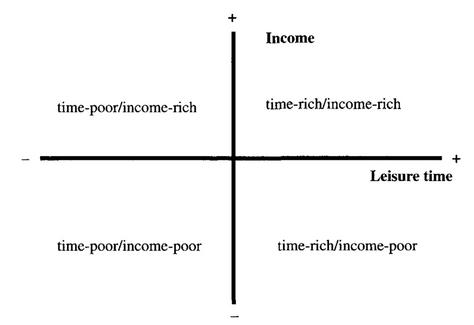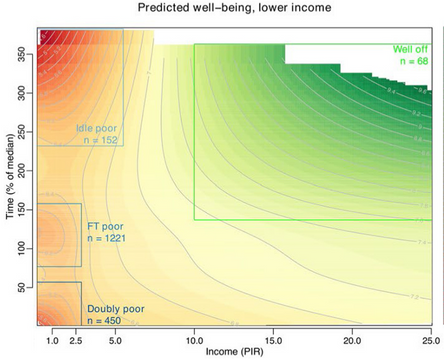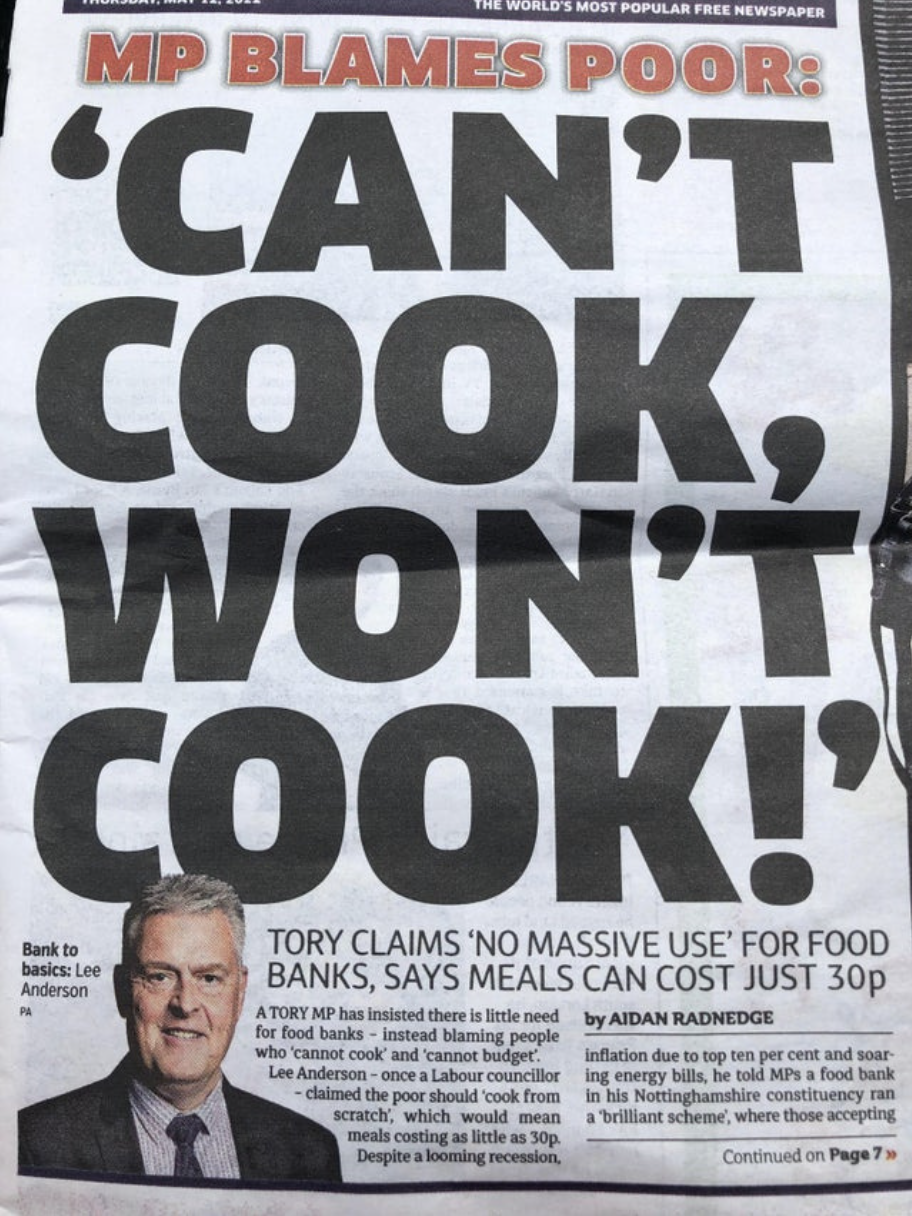I recently posted this and I'd like to elaborate on it:

Firstly, I concede that things aren't this straightforward. For example, Jäckel and Wollscheid (2007) used a fourfold matrix for their analysis of the inequalities of leisure time. Similarly, Masuda, Williams, and Tallis (2021) identified five groups when analysing life satisfaction levels bounded by levels of time and income.


That is, many people, regardless of income, experience time poverty, the chronic feeling of having too many things to do and not enough time to do them (Goodin et al., 2005).
But, while expenditures on necessities have become more inclusive, low-income groups are increasingly more "leisure-poor” (Karonen & Niemelä, 2022) because there are unique ways in which time poverty disproportionately effects low-income workers (Giurge, Whillans, & West, 2020), such as from the burden of administrative paperwork (Schanzenbach, 2009).
For example, low- and middle-income citizens in the USA who are eligible for the Earned Income Tax Credit are required to fill out long, complex application forms and to provide numerous documents. Similarly, to receive Medicaid, families have to complete arduous eligibility paperwork ranging from 24 to 31 pages in length. Many families do not have the time to fulfil these requirements (Hill & Lutzky, 2003).
Similarly, Census data conducted by the District of Columbia’s Office of Revenue Analysis shows that the commute time for low-income working adults is 120min more per week than the commute time of higher-paid workers (Moored, 2015).
Low-income workers' experience of time poverty is often driven by working multiple jobs with unpredictable work schedules making it difficult to manage family responsibilities (Lambert, 2008).
This is explored in Katherine Newman’s 2020 book Shame In My Game: The Working Poor in the Inner City. They can’t keep up with their friends, are too tired to stay up late, and find themselves outside the circles they used to run in. Whatever time they have left is given over to school, to family obligations, or to blessed sleep.
Masuda, Williams, and Tallis (2021) found that the Doubly poor spend considerably more time on weekends and weekdays caring for household members, doing household activities, and working, while the Well off spent more time socializing, relaxing, and in leisure on the weekdays, and spent considerably less time working on weekends and weekdays.
Relatedly, Bick, Fuchs-Schündeln, and Lagakos (2016) found that hours worked per adult are about 50% higher in poor countries than in rich countries.

Relative to high-income people, low-income people are more likely to wait on an average day, are more likely to wait when using services, spend additional time waiting for services on a typical day, and spend more time waiting when waiting occurs (Holt & Vinopal, 2023).
High-income workers also have greater control over when and where they work, thus feeling more energised and less fatigued from work (Kossek, Lautsch, & Eaton, 2006; Smeets et al., 2021). They also spend an increasing amount of money on childcare, vacations, culture, and leisure time over other cohorts (Lambert, 2009; Hamermesh & Biddle, 2019; Karonen & Niemelä, 2022).
This is all related to sexual pleasure, with unemployment in Britain (Ueda & Mercer, 2019) and low household income in the USA (Kim, Tam, & Muennig, 2017) associated with sexual inactivity in both genders, while a disadvantaged socioeconomic position in Spain is associated with less satisfying sexual relationships (Ruiz-Muñoz et al., 2013).
Interestingly, one of the reasons we have the leisure time that we do is because socialist Robert Owen championed the 8-hour working day in the early 19th century. At the time, working-class people faced 12-16 hour shifts, six days per week. In fact, socialist thought argues for less as well as better work (Spencer, 2022).
Anyway, this blog post is long enough and I don't want to labour the point too much. Be mindful of rhetoric which blames poor folks' individual laziness as the problem and obfuscates the very real systemic issues low- and middle-income workers face.
As I mentioned at the beginning of this post, things aren't that straightforward and we can strive to alleviate time poverty for everyone regardless of where they are on the income spectrum.


